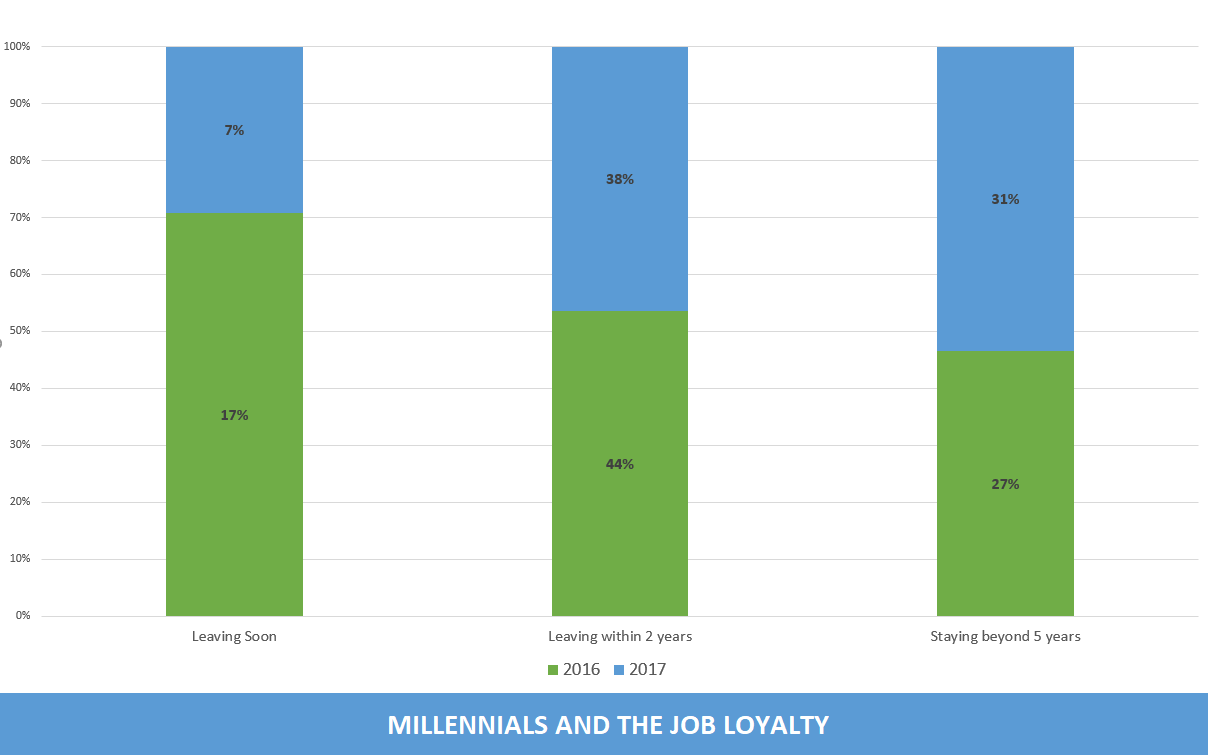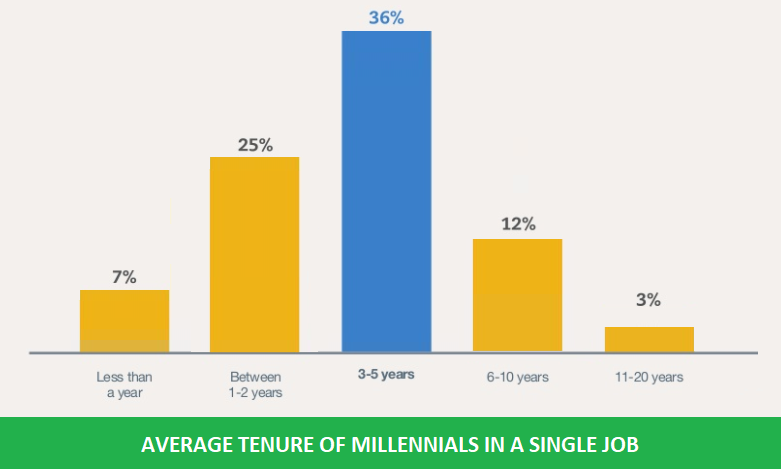As the name suggests, job-hopping is the practice of moving from one company to another, usually after serving a short period in one. Those who switch jobs more than twice or thrice in a short time period are called serial job-hoppers.
There has been a plenty of debate lately regarding the job hopping. Some people are of the opinion that it could hurt a person’s career while others are pretty much in favor of it. The millennials say that it’s not possible these days, to stay at one company for entire career, which is why they are always on the lookout for bigger opportunities.
As the largest generation in the workforce, millennials have embodied the term “job hopper.” In a recent report by PayScale it was found that the median tenure for a millennial employee was just two years as compared to seven years for a baby boomer. According to rough estimates, an approximate of 40% of the companies these days lose 15% or more of their millennial workers each year.
Conversely, a recently released 2017 Deloitte Millennial Survey throws light on a new trend that is underway. According to the report, millennials are increasingly loyal to their current employer:
- 38% plan to leave within 2 years, compared to 44% in 2016
- 31% plan to stay beyond 5 years, compared to 27% in 2016
- 7% plan to leave soon, compared to 17% in 2016
These changes indicate a shift in the millennial generation. This group is no longer the young, carefree crowd lingering at the local coffee shop. Instead, they are mature adults responding to changes in their personal lives and in global realities.
According to Wes Gay, an author at Forbes, Millennials bear a multitude of stereotypes. Perhaps none is more common in the workplace than that of “job hopper.” This stereotype is not an anecdotal assumption nor a totally unfair term; numerous studies by reputable firms indicate millennials are likely to leave their current job within a few years.
A survey provided exclusively to CNBC by Qualtrics lately, concludes that almost 90 percent of millennials surveyed said they would choose to stay in a job for the next 10 years if they knew they’d get:
- Annual raises
- Upward career mobility
While job hopping can make you look unstable, it can also be a great way to boost your income, expand your skill set and build your network, if you do it smartly. Below are some tips on how you can job hop like a pro.
Weighing the salary versus the opportunity

Millennials are all about temptations that they can do better. In case you are making a transition, it is more likely that you’re doing this to increase your income. But don’t forget there are other ways to boost your earnings too, like performance-based compensation. In a flat wage market, gaining a share in the performance of a company has a lot of value.
Reading career secrets you didn’t learn in school

You need to keep in mind that it’s not just about the money. One has to make sure to look closely at the actual work they’ll be doing and not just the salary they’re being offered. If you don’t know your long-term goal, you’d never be able to successfully make a short-term hop. In case, your new job offers almost same amount of money but it’s offering you bigger responsibilities, for instance to manage more people, bigger projects, etc. it could be a chance for you to expand your skill set and expertise. Such kind of opportunity may lead you to a better-paying job down the road.
Knowing what you really want

It’s really important to have a crystal clear understanding of why you’re making this move and what you’re planning to gain out of it. The best thing you can do in this regard is to make a list of priorities. In addition to the salary offered, consider the benefits, flexibility, job designation and organization’s culture. Do a thorough research about that company and make sure that it has a good market reputation. Being clear on what your priorities are, can also help you negotiate when you get a job offer. One important thing you must know is that apart from you getting benefit from the new job, your hiring should also help the new company. So make sure that you’re able to articulate what you’ll bring to the new job.
Leaving on good terms

Leaving your current employer on good terms is an extremely crucial aspect of job hopping. Now that you have finally negotiated a good offer, it’s time to make a leap. Ensure the transition to be as painless as possible for you as well as for your current employer. Ideally, you should give your current employer as much time as they require to fill your position. In case you can help them finding someone to fill your old position, that would be the best thing. Make sure that you never offend your current employer by saying that you have got a bigger opportunity with better salary; instead you should tell them that you’re moving on to explore new horizons in the industry and to add to your skill set so that maybe someday you can come back and serve them better.
While the primary objective with job hopping is to enhance your income and career, there’s a limit to how much it can benefit you, if you do it too frequently. So at a certain point in your career, you’ll need to invest in a commitment and work to make the current situation a better situation.








